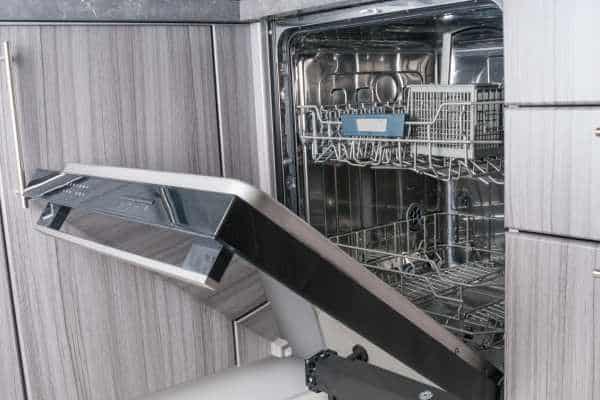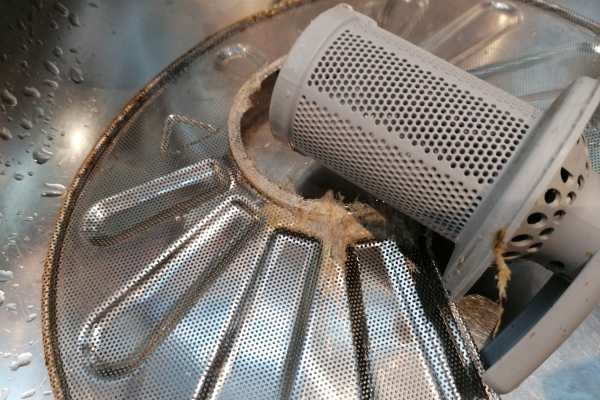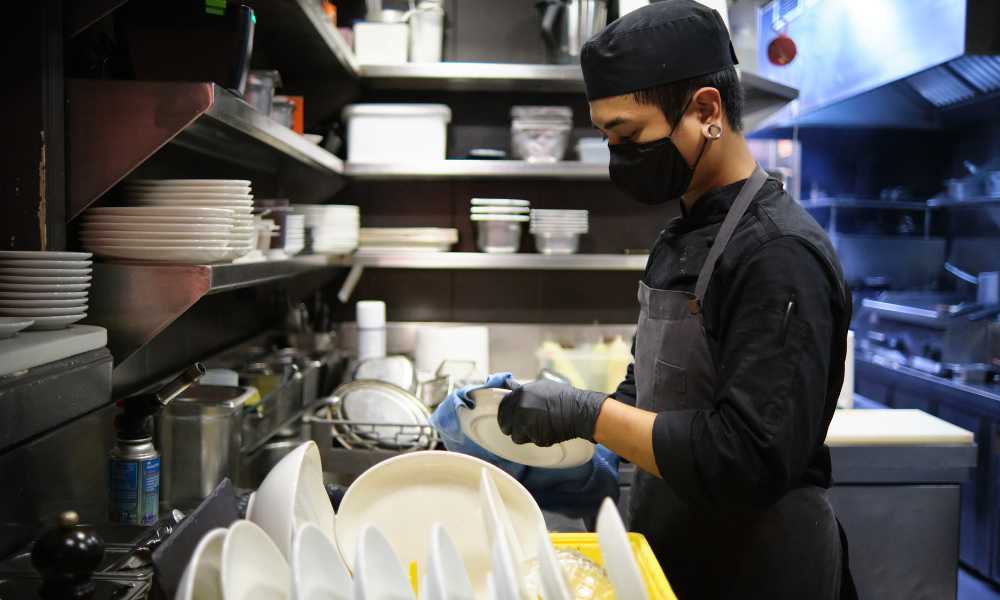Is your dishwasher leaving your dishes dirty or spotty If you’ve been asking yourself, “Why is my dishwasher not cleaning”, you’re not alone. A dishwasher that doesn’t clean effectively can be frustrating and inconvenient. Several factors can contribute to this issue, from simple problems like improper loading to more complex ones such as a clogged filter or faulty spray arms. In this article, we’ll explore the most common reasons why your dishwasher may not be cleaning properly and provide practical solutions to help restore its performance. Whether you’re dealing with stubborn stains or a complete lack of cleaning, you’ll find helpful tips to resolve the issue.
Common Reasons for Poor Cleaning Performance

Your dishwasher isn’t cleaning effectively, there are several common reasons behind the issue. Poor cleaning performance may result from a clogged filter, improper loading, or malfunctioning spray arms. Additionally, using the wrong detergent or setting the wrong water temperature can hinder cleaning. Hard water buildup and drainage problems are also frequent culprits. To accurately diagnose the problem, it’s essential to check each part of your dishwasher systematically. Understanding the specific cause of the issue will help you implement the right solution, ensuring your dishwasher performs efficiently and leaves your dishes spotless. Taking a methodical approach is key to resolving the problem effectively.
Dirty or Clogged Dishwasher Filter

A dirty or clogged dishwasher filter is one of the most common reasons why your dishwasher isn’t cleaning effectively. When the filter is clogged with food particles and debris, it prevents water from circulating properly, which can result in dishes not being cleaned thoroughly. Over time, this buildup can reduce the dishwasher’s efficiency and lead to other issues. To avoid this problem, it’s important to clean the filter regularly and check for any debris that may have accumulated. By addressing a clogged filter early, you can ensure better cleaning performance and prevent future problems, making it a crucial step in diagnosing and resolving Dish cleaning machine cleaning issues.
Improper Loading
Improper loading is one of the most common reasons why a dishwasher isn’t cleaning effectively. Overcrowding or blocking the spray arms can restrict water circulation, preventing it from reaching all the dishes. Plates, bowls, and utensils that are stacked too closely together may trap food particles and soap, leaving them dirty after a cycle. To improve cleaning efficiency, ensure that dishes are loaded properly, with enough space between items to allow water to flow freely. Place large items like pots and pans on the bottom rack, and avoid blocking the spray arms. By loading your Dish cleaning machine strategically, you can significantly enhance its cleaning performance.
Faulty Spray Arms

Faulty or blocked spray arms are a common reason why your dishwasher may not clean dishes properly. These spray arms are responsible for distributing water throughout the dishwasher, ensuring all surfaces are washed effectively. When the spray arms are clogged with food particles, hard water deposits, or other debris, water can’t reach all parts of the Dish cleaning machine , leaving dishes dirty. To resolve this issue, check the spray arms for any blockages or signs of damage. Clean them regularly by removing any buildup or particles that may obstruct the water flow. This simple maintenance can significantly improve your dishwasher’s cleaning performance and efficiency.
Low Water Temperature
Low water temperature is a common reason why your dishwasher may not be cleaning effectively. When the water isn’t hot enough, it can’t dissolve detergent properly or break down grease and food particles, leaving dishes dirty. To ensure optimal cleaning, check your water heater settings and adjust them to the recommended temperature of 120°F (49°C). If the water heater is malfunctioning or not reaching the desired temperature, it may be time to service or replace it. Ensuring your Dish cleaning machine receives adequately heated water can significantly improve cleaning performance and ensure spotless dishes every time.
Using the Wrong Detergent or Too Much Detergent

Using the wrong detergent or too much detergent can significantly impact your dishwasher’s cleaning performance. It’s essential to choose a high-quality detergent that is suitable for your water type, whether it’s hard or soft water, and compatible with your Dish cleaning machine model. Using excessive detergent can lead to residue buildup, leaving dishes cloudy or greasy. On the other hand, using insufficient detergent may result in poor cleaning results. To ensure your Dish cleaning machine performs at its best, always follow the manufacturer’s recommendations for the right detergent type and amount. This small adjustment can make a big difference in achieving spotless, clean dishes every time.
Hard Water Buildup
Hard water buildup is a common cause of poor dishwasher performance. Mineral deposits, like calcium and magnesium, can accumulate on the dishwasher’s interior, spray arms, and filter, blocking water flow and affecting cleaning. Over time, this buildup can lead to cloudy glassware, spots on dishes, and reduced cleaning efficiency. To tackle this issue, consider using a water softener to prevent minerals from building up. Additionally, periodically descaling your Dish cleaning machine with a descaling solution can help remove existing deposits and restore optimal performance. Regular maintenance and addressing hard water issues can ensure your Dish cleaning machine continues to clean effectively, leaving your dishes spotless every time.
Check the Dishwasher’s Drainage System
One common reason your dishwasher isn’t cleaning properly is a drainage issue. A clogged drain hose or pump can prevent dirty water from being removed, leaving it trapped inside the Dish cleaning machine . This stagnant water can recontaminate dishes, causing them to stay dirty. To fix this, inspect the dishwasher’s drainage system for any obstructions or blockages. Check the drain hose for kinks or debris, and make sure the pump is functioning properly. Ensuring proper water flow is crucial for effective cleaning. Regularly cleaning the drainage system can help maintain your dishwasher’s efficiency and ensure your dishes come out spotless after every cycle.
Malfunctioning or Broken Heating Element
A malfunctioning or broken heating element can significantly affect your dishwasher’s cleaning performance. The heating element plays a crucial role in both drying dishes and ensuring the water reaches the optimal temperature for effective cleaning. If the heating element isn’t working properly, the Dish cleaning machine may struggle to dissolve detergent, leaving dishes dirty or covered in residue. To check for issues, inspect the heating element for visible signs of damage, such as cracks or burns. You can also test the element’s functionality using a multimeter. If it’s faulty, replacing the heating element will restore your dishwasher’s cleaning power and improve overall performance.
Need for Regular Dishwasher Maintenance
Regular maintenance is essential to ensure your dishwasher continues to clean effectively. Cleaning the filter, spray arms, and interior regularly can prevent food buildup and clogs that hinder performance. Checking for wear and tear on components like door seals and hoses can help avoid leaks and other issues. It’s also important to periodically inspect the drainage system to ensure water flows freely. Scheduling annual professional inspections can catch potential problems early and extend the lifespan of your Dish cleaning machine . By staying on top of routine maintenance, you can keep your Dish cleaning machine running efficiently and avoid the frustration of dishes not being cleaned properly.
Conclusion
In If you’re wondering, “Why is my dishwasher not cleaning”, addressing the issue early can prevent further frustration and restore your dishwasher’s efficiency. From common problems like clogged filters and blocked spray arms to improper loading or hard water buildup, there are several factors that can affect cleaning performance. Regular maintenance, such as cleaning filters, checking for wear, and scheduling professional inspections, can help prevent these issues. By following the tips provided, you’ll ensure your dishwasher operates at its best, delivering spotless dishes every time. If the problem persists despite troubleshooting, it may be time to call a professional for further inspection and repair.

